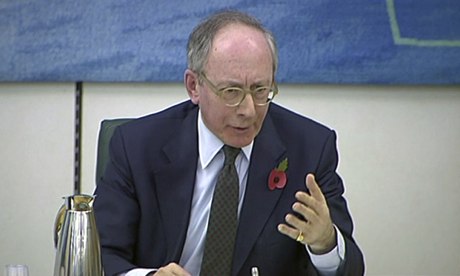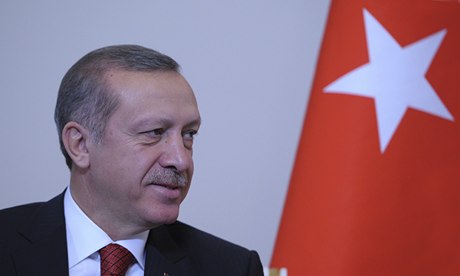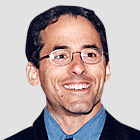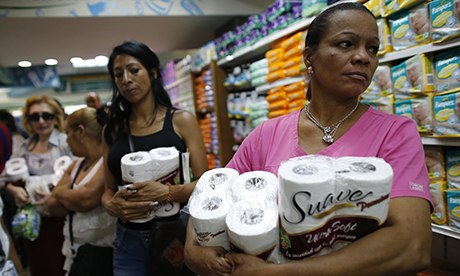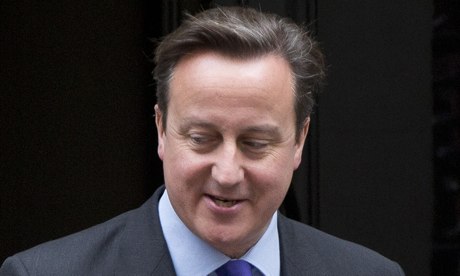By Bruce Haigh
Photo: Nelson Mandela was the biggest, warmest and most understanding person in politics. (Finbarr O'Reilly: Reuters)
Even when he was locked away in prison, Nelson Mandela was everywhere in South Africa as a symbol of hope, says Bruce Haigh, who writes here about his own experiences during apartheid as an Australian diplomat.
I cannot remember when I first became aware of Nelson Mandela or of the system of government he was trying to change. I was an 18-year-old jackaroo in the Kimberley of Western Australia when he was sentenced to life in prison on Friday June 12, 1964.
There was no connection between us when I was working with Indigenous Australians and they were being paid in tea, sugar and whatever else station owners felt appropriate or did not want.
An awareness must have occurred at the University of Western Australia, where there was a desultory anti-apartheid movement, competing with a slightly more active anti-Vietnam movement. I studied politics and history where I must have picked something up, but not enough to stop me watching the Springboks play rugby in Perth in 1971. The demonstrations did, however, make me ask questions and by the time I joined the Department of Foreign Affairs in January 1972, I knew about Mandela and apartheid.
I was posted as a diplomat to South Africa in 1976, arriving on July 1, just two weeks after the Soweto riots had broken out. At that time there was ambivalence on the part of Australian politicians and within the department as to how far Australia should go in opposing apartheid or whether it should be opposed at all.
My predecessor at the post, Di Johnstone, had made contact with black South African artists and trade unionists. We had a handover of a week and she introduced me to friends living in black townships close to Pretoria, which she fearlessly entered at the wheel of her own car.
Mandela was everywhere; a living presence; a constant in the conversations of black South Africans and white activists. He was a spiritual being, with mention of his name invoking hope; he epitomised what people were fighting for and against. His name was evoked, chanted and put into song outside the court houses where political trials of black activists took place.
Defined by his commitment to end the evil of apartheid, Nelson Mandela became a symbol of good. He was a leader, along with the Dalai Lama, for whom rightful adulation was his natural companion. Throughout the world many have been inspired by his single-minded quest for justice and decency.
The government and the majority of white South Africans never mentioned him. He was a terrorist, a communist and a threat to white supremacist politics.
Born on July 18, 1918, in the Transkei, Nelson Mandela led the idyllic life of a bush boy until at nine he was sent away to be educated. In 1939, he was accepted to study law at the University of Fort Hare. He completed two years before the call of Johannesburg took hold. Fortunately he found work as an articled clerk with a sympathetic Jewish lawyer. He completed his degree by correspondence. He joined the ANC in 1944 and was quickly recognised as a person of considerable intellect and talent.
Nelson Mandela helped draw up the Freedom Charter which was adopted in 1955. In 1956 he was charged with treason and acquitted. In 1960 the tragic Sharpeville Massacre occurred, which set the tone of the relationship between black and white South Africans for the next 30 years.
For most of the time he was in prison, the government and the majority of white South Africans never mentioned him. For them he was where he should be, locked in prison for life on Robben Island off Cape Town. He was a terrorist, a communist and a threat to white supremacist politics, otherwise known as apartheid, which was the complete separation of the races including housing, schooling, hospitals and marriage.
Blacks were not allowed to use the same public toilets or public benches as whites, or travel in the same buses. Blacks were paid a lot less than whites and were abused and humiliated on a daily basis. Blacks were in a majority of four to one.
Every day in the weeks and months after my arrival, the press was full of the riots. The Rand Daily Mail, The Star and The Pretoria News carried graphic pictures of black students challenging the police and stories of unrestrained police brutality. The ambassador announced that the riots were due to criminal elements, stirred up by communist agitators. He directed that I write a memo on the state of the South African economy.
The tension in the air was palpable. It felt as if the country was on the edge of a revolution - it was.
I was directed not to report the causes of the rioting and to keep coverage of black affairs to a minimum. This was no good. The shame of apartheid confronted me a week or so after my arrival. An old black woman was repeatedly bypassed for service in a shop in favour of younger white customers; a black man was beaten at a bus stop because he did not have a pass to be in a white area; and blacks would not look at me on the street - they walked with eyes averted and I sensed the hostility.
In fact, the tension in the air was palpable. It felt as if the country was on the edge of a revolution - it was. The police could not cope so they called in the army.
I had been watching, listening, looking from behind the walls of white privilege. Nearly three months had gone by; I felt ready to enter the fray. As I was forbidden from writing on black affairs I had to resort to what became a favourite tool, a record of conversation. It stood as a document of what had transpired between me and the person I had chosen to talk to or interview. This particular document could not be altered by anyone except the record taker.
Synonymous with the name Nelson Mandela amongst the black youngsters was a new name, that of Steve Biko, the charismatic young leader of the Black Consciousness Movement. He was banned to King Williams Town in the Eastern Cape, but his organisation had an office in Johannesburg. I had spoken to black youngsters in Mamelodi and Attridgeville, townships close to Pretoria; they urged me to speak to these BCM office holders in Johannesburg.
I went up flights of dingy stairs to a small office crowded with hostile black men who proceeded to abuse me as representative of everything they loathed and detested about whites. I stood my ground, offered cigarettes and we started talking. The most aggressive was Tom Manthata; later he apologised and we laughed about it. Later still he went to prison and I used to visit him as well as Steve Biko's sister, Bandi, who was locked up in a prison known as The Fort in Johannesburg.
A man of heroic compromise

Nelson Mandela's goodness was mixed with a steely determination, writes Marius Benson.I had my record of conversation and a list of contacts inside Soweto. A recommendation went ahead of me to Steve Biko in King Williams Town. The most important black network then operating in South Africa was opening up to me.
Within the embassy a showdown was looming. The ambassador did not like my records of conversation and marked me well down on my annual assessment. When I suggested that he was out of touch, he demanded my recall to Australia. That did not happen when I pointed out that he had refused to make representations on instruction from the Australian Foreign Minister on behalf of three detained black members of the YWCA. Incredibly he sent this exchange back to Canberra and was himself recalled.
I began visiting Soweto, talking to a range of people including teachers and school kids, although the schools were closed. Through Donald Woods, the courageous and outspoken newspaper editor of the East London, Daily Dispatch, I was able to meet Steve Biko and obtain a really great record of conversation. He talked at length about forging an alliance between the BCM and the ANC and his admiration for Mandela. Biko never met Mandela but he was a tangible presence in all of our conversations. Biko and I got along. He was a natural leader, helped by being tall, smart and good looking.
I became good friends with Donald Woods and helped him leave the country with the manuscript of the book 'Biko' which he had just completed but couldn't publish in South Africa.
At the time, Donald was banned following the murder of Steve Biko by police in a prison cell in Port Elizabeth. All of the BCM leadership was banned or in jail. The murder of Biko was such a shame, it was such a waste, and it reduced me to tears.
The more it became known that I was willing to help, the more the requests came. No one at the embassy knew what I was doing. I was living a strange double life.
For some time ANC members came from underground and made themselves known to me, usually wanting help of one sort or another. BCM members did the same and also needed help. Some left the country to join the ANC and undertake military training; others wanted the protection my diplomatic status offered to visit friends or for me to take secure messages to colleagues banned to distant towns and locations. There was a Catholic Bishop in a nearby country that was also a senior figure in the ANC, and in the highly charged and uncertain times created by the banning and detention of so many activists, many wanted and needed to visit him and other leaders who had fled South Africa to nearby countries in order to get direction.
Others needed a safe haven from the police for a period of time, so they stayed in my house which offered them diplomatic protection, and others needed my intervention with the police so that they could return home without fear of harassment. Others needed to leave the country for good so I took them.
The spirit of Nelson Mandela was present at the funeral of Steve Biko, where his name and importance in the struggle was invoked as often as that of Steve Biko's. It was also present at the inquest into the death of Steve Biko in Pretoria, where the songs and chants underlined his importance in maintaining the fight against apartheid.
Winnie Mandela maintained a high profile during these years and helped keep Nelson before the white-owned-and-run media. For her trouble she was banned to the small rural town of Brandfort with her daughters only to come home one night to find her house, with many important papers, burnt down. It is my belief that the constant pressure from the security police eventually unbalanced Winnie.
Freedom song

A simple, powerful song in tribute to Nelson Mandela danced its way into history, writes Tracee Hutchison.Life in South Africa in the late seventies was fraught. And the more it became known that I was willing to help, the more the requests came and the more I felt compelled to do. It was a strange situation because no one at the embassy knew what I was doing. I was living a strange double life and the two never came together.
A lot of black and white friends suffered while I was in South Africa and some died. I felt angry and impotent. I had shifted a long way, but I had not been able to take the Australian government with me. Just as today with the question of refugees, there were some truly awful defenders of apartheid, by commission and omission, including John Howard (who opposed sanctions).
On return, together with Di Johnstone, I quietly lobbied for change in South Africa. But I was not really up to it. I was quite worn out. Everything in my life was an effort, nothing was easy, and I was cross that no-one seemed to care about South Africa, about those tiny white coffins I saw every Monday, lined up against the wall of the clinic in the squatter settlement of Mabopane 40 minutes from central Pretoria, because the drinking water in wells was being mixed with sewerage in pits at the same depth.
I first met Nelson Mandela at a lunch held in Parliament House in Canberra on October 23, 1990, during his visit to Australia not long after he was released from prison. We talked, but not for long. Earlier that year had seen a visit to Australia by Donald Woods and his wife Wendy as special guests for Refugee Week. The next time I met Nelson Mandela was at the unveiling of a statue to Steve Biko in East London in September 1997. He was in good form and worked the crowd.
I was in South Africa in June 2010 at the time of the World Cup when Zenani, a great-grandchild of Nelson, was killed in a car accident; nonetheless, Nelson turned up and performed his public duties in relation to the World Cup despite his grief.
Whereas once white South Africans either refused to acknowledge Nelson Mandela or were spitefully cruel in their comments about him, today more than 95 per cent would see him as a great South African.
That time saw the launch of Ifa Lethu, an organisation I had helped establish with Di Johnstone to receive black works of art back into South Africa which had been taken to many countries during apartheid. It was chaired and guided through its early stages by a friend, Dr Mamphela Ramphele, a former director of the World Bank and close associate of Steve Biko. From an initial joint donation from Johnstone and myself of 70 works, the collection has now grown to over 500 works of returned art. Malcolm Fraser is the Australian patron.
Mamphela also greatly assisted me in running an education program for black South Africans in the early nineties.
Whereas once white South Africans either refused to acknowledge Nelson Mandela or were spitefully cruel in their comments about him, today more than 95 per cent would see him as a great South African, much of it stemming from his embrace of white South Africa, from his publicly acknowledged affection for his white prison guard on Robben Island to his embrace of the Springbok Rugby Team in 1994, portrayed in the 2009 film 'Invictus'.
Elections were held in 1994 and Nelson Mandela became president. The final statement is his. Addressing the court at the end of what was known as the Rivonia Treason Trial, Nelson Mandela said:
Above all, we want equal political rights ... It is not true that the enfranchisement of all will result in racial domination ... the ANC has spent half a century fighting against racialism. When it triumphs it will not change that policy. This then is what the ANC is fighting for ... It is a struggle of the African people, inspired by their own suffering and their own experience. It is a struggle for the right to live.
I have cherished the ideal of a democratic and free society in which all persons live together in harmony and with equal opportunities. It is an ideal which I hope to live for and to achieve. But if needs be, it is an ideal for which I am prepared to die.
Nelson Mandela was the biggest, warmest and most understanding person in politics we have seen in modern times. He rose above mediocrity, the pedantic daily dealings and petty politics which remain our lot.
Visit News Online's special coverage website to read more reactions to the death of Nelson Mandela.
Bruce Haigh is a political commentator and retired diplomat, who served in South Africa from 1976-79 and initiated the Embassy's contact with the black South African resistance movement. Haigh's role in helping banned newspaper editor Donald Woods escape from South Africa was portrayed in the film Cry Freedom. View his full profile here.
Mandela, Madiba, father of a nation - The Drum (Australian Broadcasting Corporation)

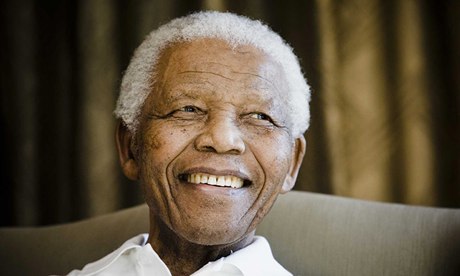
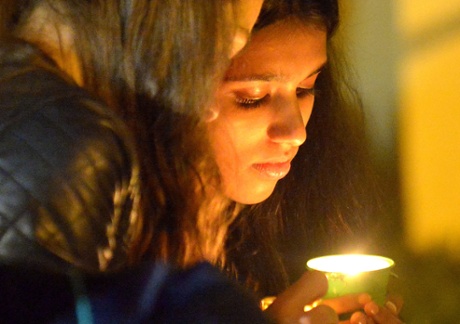 South Africans hold a candle outside the house of former South African president Nelson Mandela following his death in Johannesburg. Photograph: Alexander Joe/Afp/Getty Images
South Africans hold a candle outside the house of former South African president Nelson Mandela following his death in Johannesburg. Photograph: Alexander Joe/Afp/Getty Images 
